Incidentally, Hamlet is a modern, Nordic manifestation of ‘being Electra’ (with Orestes): it substitutes (his) vacillating conscience for (her) certainty of will. The Prince of Denmark and melancholy says: “Thus conscience does make cowards of us all; / and thus the native hue of resolution / is sicklied o’er with the pale cast of thought, / and enterprises of great pith and moment / with this regard their currents turn awry, / and lose the name of action” (Act III, Scene 1). In this sense, as Hegel noted, we entered modernity with Hamlet.
When published, a journal settles accounts with itself first, and then with others. It is always more, and less, than we wanted it to be. Yet, the assessment of the previous issue is a fillip to the coming issue.
Like a happy Sisyphus, as Camus put it, we push the weight of every issue up the mountain, knowing that its fall back to the foothills is nevertheless the assurance of yet another ascent. And we keep our eyes fixed on the summit while we climb.
On publication of the first issue, Electra was greeted with appreciation, insightful comments, suggestions, applause, and advice. In a permanent, ongoing dialogue, we listened and built up a catalogue of words and ideas, of what was gratifying and what needed caution. While dialogue does not guarantee anything, it is a precondition for everything.
This second issue supplements (and confirms, reiterates, renews) the first: its purposes, its journeys and explorations, its imperfections, its persistence, and its pertinence. As we said in the inaugural foreword, “We hope that, while being what they are, all issues can be the first of the ones to follow and the last of the preceding ones.”
It constructs a line connecting the first issue to the third in the geometry of words, thoughts, and images. As Euclid said, “There is no royal road to geometry.” But the ancient geometer said more than that: “What has been affirmed without proof can also be denied without proof.” That is why there are journals like this.
In this second issue, the journal welcomes the dawn of a new day and the glimmer of a new night. If we read with a keen eye, we shall see the world coming closer at the speed of our awareness.
An editorial is the door to a dwelling in which you can step through a window. It is also like those boats that go from the river to the sea when there is no fog, no deviation, and no retreat.
We could expand on this issue here, saying why, how, and what it is. We could spell out, pronounce, and announce its index, explain it, and wrap it in less adequate words. How demeaning it would be to our readers and to us. Besides, it would add a few more grammes to the mass of stupid futilities that weigh upon the Earth every day. Is there anything more insistent and redundant than stupidity?
This is a journal of thoughts, and we try to know what it means when it means something. We know that, in this war and in this peace, no one ever wins if no one dares, sometimes, to lose. We also know now that one often wins by winning.
Antonin Artaud said: “All journals are slaves to a way of thinking and, as a result, they despise thought.” Roland Barthes wrote: “In language, servitude and power are inescapably intermixed.”
We are aware of it, but we do not fear what we are aware of. That is how Electra views itself; and how, perhaps in its best moments, it goes beyond, past and even against itself. All these movements create a journal. In this game of masks, its true face is revealed.
In every issue, a journal is a Utopia that cannot be achieved. Only in this way can it be the dreamscape of a desired Utopia in its next issue. That gap is like the fault in a tectonic plate: it can produce openings, shifts, upheavals, and happenings.
That is where we can see what is hidden. Or look at what is shown to be in hiding. Then we can say with Robert Musil: “There is absolutely no significant idea that stupidity would not know how to apply; stupidity is active in every direction, and can dress up in all the clothes of truth. Truth, on the other hand, has for every occasion only one dress and one path, and is always at a disadvantage.” And we can but agree with Musil when he says: “If it were not so hard to distinguish stupidity from talent, progress, hope, or improvement, no one would want to be stupid.”
Knowing this, the world becomes clearer – and our shadows on it clearer, too.
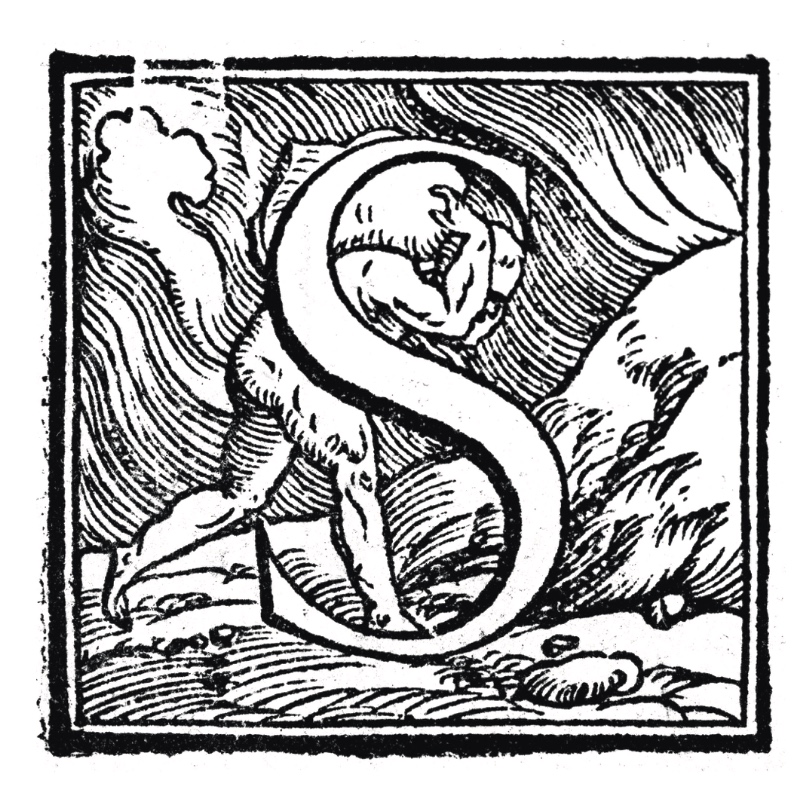
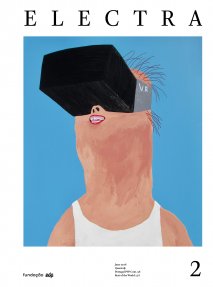
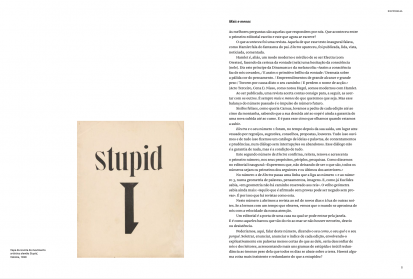
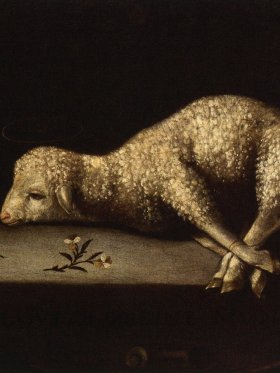
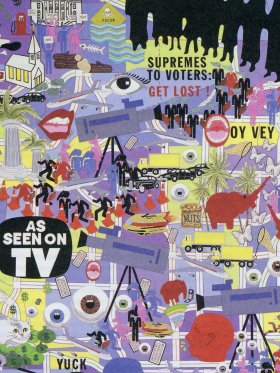
Share article